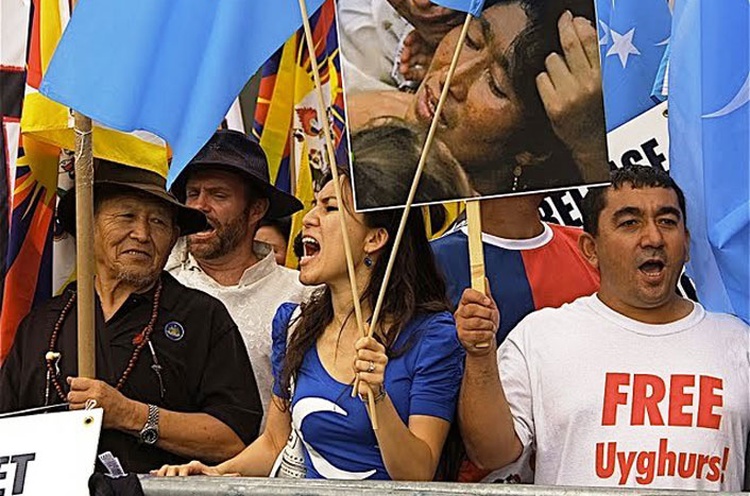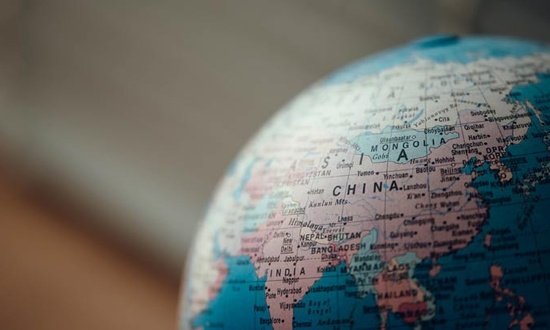Note from Randy Alcorn: At my request, EPM staff member Stephanie Anderson researched and wrote the following, with which I fully concur. This is a justice issue that should burden all of us. May God use this blog to draw attention to what is surely on His heart.
I’ve been both heartbroken and angered to read about the enslavement of the minority Uighur people by the Chinese government. Some friends who are former missionaries in China confirmed this is happening and say, “It is indeed horrible.”
Who are the Uighurs (pronounced “Wee-gers”)? This article from The Gospel Coalition provides a helpful and brief history: they are “a Central Asian people group relatively unknown to the Western world. The majority of them live in northwest China, in an area known as the Xinjiang Uighur Autonomous Region, which is their ancestral homeland. Xinjiang is home to about 10 million Uighurs. In ethnolinguistic terms, the Uighurs are a Turkic people group.”
Here’s an overview of what’s happening to them, from an international policy council:
Uyghurs, many of whom were CCP [Chinese Communist Party] regulars and members of Xinjiang's intellectual elite, were once tolerated, but now are no longer trusted. Some, like the former President of Xinjiang University Tashpolat Tiyip, have been arrested and accused of being “two faced” betrayers of China. Many Uyghurs have been plucked from their families and forced to work in prison-like factories where they are becoming part of Xinjiang's growing urban manufacturing class, producing items for companies that are suppliers for “international tech giants such as Apple and Lenovo.”
ABC News reports,
Drawing upon open-source Chinese language documentation, satellite imagery, media reporting and academic research, the report entitled Uyghurs for Sale identifies some 83 well-known consumer brands linked to factories where Muslim minorities are thought to be working in forced labour conditions across China.
…More than a million Uyghurs, Kazakhs and other Muslim ethnic minorities are thought to be detained in what the Communist Party calls vocational education centres but which are referred to by the UN as “re-education camps”.
Some have observed it is likely the largest-scale incarceration of people based on religion since the Holocaust.
You can read the report here. It “provides evidence of the exploitation of Uyghur labour and the involvement of foreign and Chinese companies, possibly unknowingly, in human rights abuses.”
The report lists these specific companies:
In all, ASPI’s research has identified 82 foreign and Chinese companies directly or indirectly benefiting from the use of Uyghur workers outside Xinjiang through potentially abusive labour transfer programs as recently as 2019: Abercrombie & Fitch, Acer, Adidas, Alstom, Amazon, Apple, ASUS, BAIC Motor, BMW, Bombardier, Bosch, BYD, Calvin Klein, Candy, Carter’s, Cerruti 1881, Changan Automobile, Cisco, CRRC, Dell, Electrolux, Fila, Founder Group, GAC Group (automobiles), Gap, Geely Auto, General Motors, Google, Goertek, H&M, Haier, Hart Schaffner Marx, Hisense, Hitachi, HP, HTC, Huawei, iFlyTek, Jack & Jones, Jaguar, Japan Display Inc., L.L.Bean, Lacoste, Land Rover, Lenovo, LG, Li-Ning, Mayor, Meizu, Mercedes-Benz, MG, Microsoft, Mitsubishi, Mitsumi, Nike, Nintendo, Nokia, Oculus, Oppo, Panasonic, Polo Ralph Lauren, Puma, Roewe, SAIC Motor, Samsung, SGMW, Sharp, Siemens, Skechers, Sony, TDK, Tommy Hilfiger, Toshiba, Tsinghua Tongfang, Uniqlo, Victoria’s Secret, Vivo, Volkswagen, Xiaomi, Zara, Zegna, ZTE. Some brands are linked with multiple factories.
Earlier this month, BBC reported about a video recorded and sent by Merdan Ghappar, a young Uighur man who has been imprisoned inside China’s detention system. He managed to send the video, along with text messages, to his family, showing his imprisonment:
In addition to deporting and imprisoning people, the Chinese government has worked to drastically reduce Uighur birth rates through forced birth control and abortions. “The state regularly subjects minority women to pregnancy checks, and forces intrauterine devices, sterilization and even abortion on hundreds of thousands, the interviews and data show,” the AP reports.
Birth rates in the mostly Uighur regions of Hotan and Kashgar plunged by more than 60% from 2015 to 2018, the latest year available in government statistics. Across the Xinjiang region, birth rates continue to plummet, falling nearly 24% last year alone — compared to just 4.2% nationwide, statistics show.
…“It’s genocide, full stop. It’s not immediate, shocking, mass-killing on the spot type genocide, but it’s slow, painful, creeping genocide,” said Joanne Smith Finley, who works at Newcastle University in the U.K. “These are direct means of genetically reducing the Uighur population.”
The government has even directed hospitals to kill infants after birth.
So what can we do? In their report “Uyghurs for Sale,” the Australian Strategic Policy Institute makes these recommendations:
Consumers and civil society groups, including NGOs, labour unions and consumer advocacy groups, should:
- demand that companies that manufacture in China conduct due diligence and social audits to ensure that they’re not complicit in forced labour practices
- advocate for the recognition of continual, multilayered surveillance and monitoring of workers and their digital communications—both in and outside work hours—as an emerging and under-reported indicator of forced labour and an important human rights violation
- push brands to be more transparent about the make-up of their supply chains and the preventative measures they have put in place to ensure forced labour does not occur
- demand that companies make new public commitments, uphold current commitments, or both, to not use forced and coerced labour in their global supply chains and that they act quickly and publicly when such cases are identified.
If a brand you regularly purchase from is listed in the report, you can write a polite but firm letter to their customer service.
Finally, and most importantly, in addition to giving attention to the plight of the Uighurs, we can pray. Greg Turner writes for The Gospel Coalition, “Pray for the Uighur people. Pray they would be treated with human dignity. Pray, most of all, that the gospel would penetrate all the barriers that surround them and reap a harvest among these precious people whom God loves.”
“Speak up for those who cannot speak for themselves, for the rights of all who are destitute” (Proverbs 31:8).
Image: SFT HQ (Students for a Free Tibet) / CC BY




